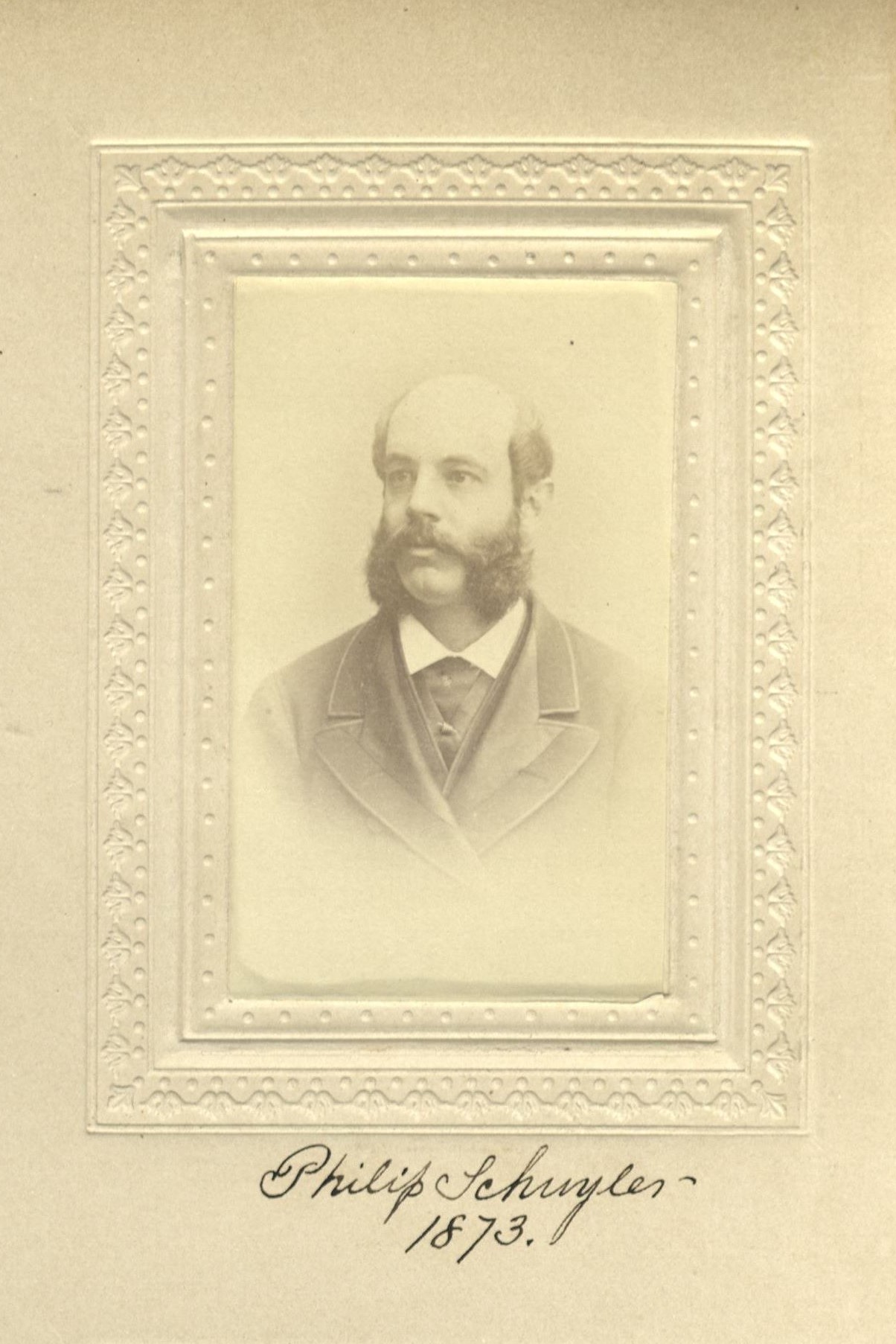Army Officer/Civic Affairs
Centurion, 1873–1906
Born 20 June 1836 in New York (Manhattan), New York
Died 29 November 1906 near Lynchburg, Virginia
Buried Sleepy Hollow Cemetery , Sleepy Hollow, New York
, Sleepy Hollow, New York
Proposed by James F. Ruggles and Francis A. Stout
Elected 5 April 1873 at age thirty-six
Archivist’s Note: Son of George L. Schuyler
Proposer of:
Century Memorial
Philip Schuyler was a New Yorker by birth and long descent, having been born in this city in 1836, and being the great grandson of Major-General Schuyler of the Continental army. He studied at the Lawrence Scientific School under Professor [Louis] Agassiz, and at the University of Berlin, and on his return to his native country studied law in the office of the late Benjamin D. Silliman. He was with the Seventh Regiment when, in the spring of 1861, it was ordered to the defence of Washington, and from that service was appointed First Lieutenant, Fourteenth United States Infantry, becoming Captain in 1863. He served as Acting Assistant Adjutant General to the Provost Marshal General of the Army of the Potomac and of the Department of Virginia, was engaged in Grant’s campaigns of 1864 and 1865, and received the rank of Brevet Major U. S. Army in April, 1865, “for gallant and meritorious services during the recent operations resulting in the fall of Richmond, Va., and the surrender of the insurgent army under General R. E. Lee.” Major Schuyler was especially devoted to outdoor sports. He was an active member and officer of the New York Yacht Club, and the Seawanhaka Yacht Club, and the Ardsley Club. He was also, at the time of his death, the President of the Union Club and the New York Hospital. He held many positions of trust from time to time, mostly altruistic, and devoted to them his energy and ability with efficiency and fidelity and with the utmost generosity. An intimate friend writes of him in a minute of the Military Order of the Loyal Legion: “Sympathetic in his relations to all, loyal in his friendships, a happy participant in the choicer amenities of life, he was incapable of an unworthy thought or deed. Words of personal detraction never passed his lips. His speech, however earnest, like his temper, was ever mild and moderate. None knew him but to respect and admire him. Those within the circle of his intimate friends, a large one of many varying personalities, are all at one in the appreciation of his innate refinement, his generous, manly attributes, and his delicate consideration for others. His manners were open, courteous, and even courtly. Hospitality was one of his constant enjoyments. An ideal host, he was far and wide a coveted guest.”
Edward Cary
1907 Century Association Yearbook

